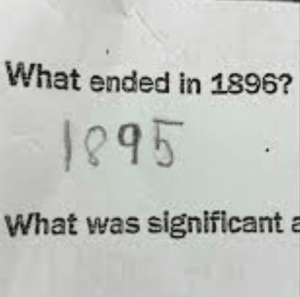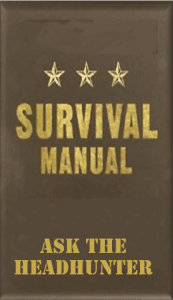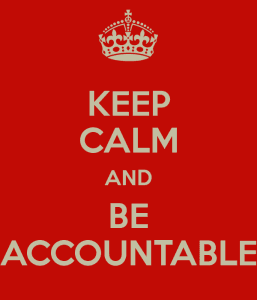In the April 11, 2017 Ask The Headhunter Newsletter, a reader rejects recruiters who demand references before an interview.
Question
 What do you think of recruiters demanding the identity of my references — and demanding to check them — often before there’s even any expression of interest from the hiring manager? Some recruiters get seriously butt-hurt when I won’t instantly hand over references, and claim they won’t submit me otherwise.
What do you think of recruiters demanding the identity of my references — and demanding to check them — often before there’s even any expression of interest from the hiring manager? Some recruiters get seriously butt-hurt when I won’t instantly hand over references, and claim they won’t submit me otherwise.
I would be nuts to have my references called every time some recruiter decides it would be convenient to check them. I never give references except directly to hiring managers after a successful interview with said hiring managers. Am I wrong?
Nick’s Reply
Your policy is a good one.
Most people view requests for their references as a good sign. They readily turn over a list of names because they assume the request means an employer is seriously interested in interviewing or hiring them. That used to be a reasonable assumption, but not any more.
Many reference requests are unreasonable, unwarranted, and sometimes even fraudulent — and you should know when to politely but firmly decline them. But before you try to decide whether a recruiter’s (or employer’s) request is legitimate, first consider whether whether you’re even being recruited! (See How to screen headhunters.)
Are you being recruited?
Not everyone that solicits you for a job is recruiting you. Learn to distinguish a solicitation from a real recruiting call. In today’s highly automated job market, this is a difficult distinction for most people. (See How HR optimizes rejection of millions of job applicants.) Let me try to explain with an analogy — a solicitation I actually received.
I got a call from a company that wanted to sell me an extended warranty on my car.
“Wow!” I said. “That’s great! This is just what I need! Tell me more.”
For five minutes the caller explained all the benefits. A one-time fee would get me no-cost repair work and parts for virtually anything that might go wrong with my car for the next three years. She even patiently explained the exceptions. I told her I was ready to sign up. “What’s the make, model and year of your car?” she asked, as she started filling out the form for me over the phone.
“It’s a 1959 Chevy Bel Air 4-door,” I said.
She burst out laughing. “Sorry, I can’t sell you an extended warranty for a car that old!” she said.
“Then why did you call me?” I asked.
“I didn’t know what kind of car you have!” she replied, and hung up.
Her call was a blind solicitation. Like most recruiters, that telemarketer had no idea whether I was a potential customer. Nor do most people soliciting you for jobs have any idea whether you’re a realistic candidate. “But that’s why they’re contacting me! To find out!” you might respond.
No, that’s why they’re wasting your time. When a real recruiter contacts you, it’s because she has already spoken to people that know you and recommend you. (And that car warranty telemarketer would know what kind of car I own.) That’s likely how she got your name! She wouldn’t contact you otherwise. She doesn’t need your references until after she has interviewed you in detail, or after her client has interviewed you for a job.
When a “recruiter” asks for your references prior to an interview, politely but firmly decline and end the call, because you’re not being recruited. You’re being solicited by someone who has not done any work to justify contacting you. The “recruiter” wants you and your references to do all the work of proving you’re qualified for the job. In short, that’s not a recruiter calling. It’s a telemarketer. It’s why — two weeks after you’ve submitted all your information and gotten yourself all worked up about “an opportunity” — they never call you back. You’re a 1959 Bel Air. (See Why HR should get out of the hiring business.)
Reference theft
If that extended car warranty telemarketer calls you, would you give her the names of three of your friends, along with their phone numbers and makes and models of their cars?
Of course not. You know she’s going to call them with the same sales pitch she gave you. So, why would you give an unknown “recruiter” the names and contact information of three people who know and respect you?
In today’s dialing-for-dollars recruiting world, three credible referrals are worth a lot of money. Odds are good that the “recruiter” wants nothing from you but three new names. The caller is stealing your references under false pretenses — and even creating competition for the job being pitched to you.
That’s reference theft. It makes you a sucker because you’re doing the recruiter’s job for him. And it earns you the ire of three busy people who used to respect you.
Rules for references
Consider using these rules when anyone asks for your references.
- Before you disclose anything about yourself, ask what the recruiter already knows about you. A good recruiter will not contact you unless she knows more than is on your online resume or profile. She’s already talked to people who recommend you — or she would not bother recruiting you. A real recruiter does not need to ask you for references. That would be like asking you on a date, but only after requesting a list of your friends and family.
- Get the recruiter’s own references first: Names and contact information of three managers who have hired through the recruiter. Contact those managers to confirm the recruiter. I’d also ask for three people the recruiter has placed, and I’d talk with them. Does this seem like an awful lot of work to you? Don’t worry — you will rarely have to make those calls, because you will rarely encounter a recruiter who actually has references. But a good recruiter will be happy to comply, because the recruiter already knows you’re a worthy candidate and he’ll do anything reasonable to impress you with his excellent credentials.
- Don’t invest until an employer invests in you. Remember: An employer or its recruiter contacted you, not the other way around. They want you to do something — to consider a job. They should invest in a face-to-face job interview to demonstrate their sincerity — and to show they’re worth your further consideration. If you’re satisfied the employer is worthy and that you really want the job, then it’s time to provide your references.
- Find out who is going to contact your references and how. Do you really want a third-party “background checker” to call your references? How about an HR clerk who doesn’t understand the work you do? If it’s a legit reference check, will it be done via phone or e-mail? Or will it be an online form? Which of these reference-checking methods do you think will portray you best? Hand over references only to the hiring manager, and then ask the manager to make those calls personally. (See Automated Reference Checks: You should be very worried.)
- Find out who will have access to your reference report. Nowadays many reference investigations are done by third-party services. That means once your references are checked and filed, the reference-checking firm can sell them again and again to other employers — perhaps without your knowledge. A bad reference or a poorly handled reference can dog you for years, and you’ll never know why you’re being rejected again and again.
Inappropriate reference requests are a tip-off
Most good employers recruit you because someone that knows you recommended you. Real recruiting is not blind solicitation.
Inappropriate requests for your references are actually a good tip-off that you’re not dealing with a real recruiter. Hang up, or delete the e-mail. Real recruiters contact you only after they have checked you out. Respectful employers won’t ask for your references until after there’s mutual interest in taking discussions further. They will treat you deferentially because they’ve already invested a lot of time in you — before they got in touch.
You’ll know a good recruiter and employer from what they say when they contact you. But don’t kid yourself — they’re rare. Your next job will likely come from your own personal contacts, not from a recruiter. Don’t expect those odds to change just because you’d like them to. (Don’t know how to develop personal contacts? Start with this simple suggestion: Meet the right people.)
Protect your references
We haven’t even discussed the problem of letting many recruiters bother the people who volunteered to serve as your references. That’s because we don’t have to. You know better than to permit it. You know not to abuse your references.
Now let’s close on this complaint you made: “Some recruiters get seriously butt-hurt when I won’t instantly hand over references, and claim they won’t submit me otherwise.”
As you’ve already surmised, they have no idea who you are or whether you’re a reasonable candidate. If they’ve got you on the hook, but you won’t sell out your best professional references for a long-shot “opportunity” that you know nothing about — then they’ll drop you. Good.
If you’re having difficulty telling the difference between being solicited and being recruited, try the rules of references above. The first rule alone should usually be sufficient to save your valuable time, and to protect your valuable references.
When do you turn over your references? Have your references ever been abused or misused? Do you respond to recruiters who don’t know the first thing about you?
: :
 You work with bad apples and want to get away from them. That reflects well on you. You just need to say it the right way.
You work with bad apples and want to get away from them. That reflects well on you. You just need to say it the right way.



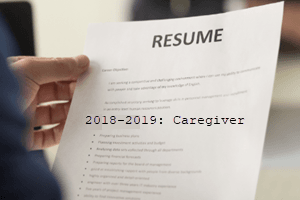
 First, a little background.
First, a little background. When they’re job hunting, people rationalize. They’re afraid they won’t get picked, so they tolerate all kinds of niggling abuse. Making someone jump through hoops — online forms, silly rules about when references are due, eating dust when HR serves it — is not right, smart, or good business. But job seekers will probably jump through hoops because they want a shot at a job. Or that’s what they tell themselves. It’s for a shot at the job. So they tolerate demeaning and meaningless demands.
When they’re job hunting, people rationalize. They’re afraid they won’t get picked, so they tolerate all kinds of niggling abuse. Making someone jump through hoops — online forms, silly rules about when references are due, eating dust when HR serves it — is not right, smart, or good business. But job seekers will probably jump through hoops because they want a shot at a job. Or that’s what they tell themselves. It’s for a shot at the job. So they tolerate demeaning and meaningless demands. What do you think of recruiters demanding the identity of my references — and demanding to check them — often before there’s even any expression of interest from the hiring manager? Some recruiters get seriously butt-hurt when I won’t instantly hand over references, and claim they won’t submit me otherwise.
What do you think of recruiters demanding the identity of my references — and demanding to check them — often before there’s even any expression of interest from the hiring manager? Some recruiters get seriously butt-hurt when I won’t instantly hand over references, and claim they won’t submit me otherwise.
 I recently had an experience with a headhunter(?) I do not know who sent me an unsolicited pitch to look at a job listing in my field in my city. The pitch was sent via LinkedIn with an attachment. I do not open attachments from people I do not know. This brings up the issue of cyber security in dealing with any kind of pitch about a job.
I recently had an experience with a headhunter(?) I do not know who sent me an unsolicited pitch to look at a job listing in my field in my city. The pitch was sent via LinkedIn with an attachment. I do not open attachments from people I do not know. This brings up the issue of cyber security in dealing with any kind of pitch about a job.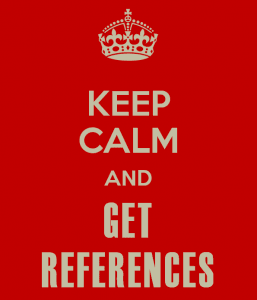 Did I say check references?
Did I say check references? Today (March 1) we’re joined by some special guests! A big welcome to IT professionals from
Today (March 1) we’re joined by some special guests! A big welcome to IT professionals from 